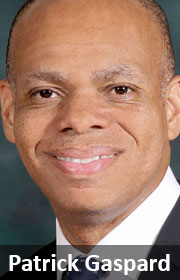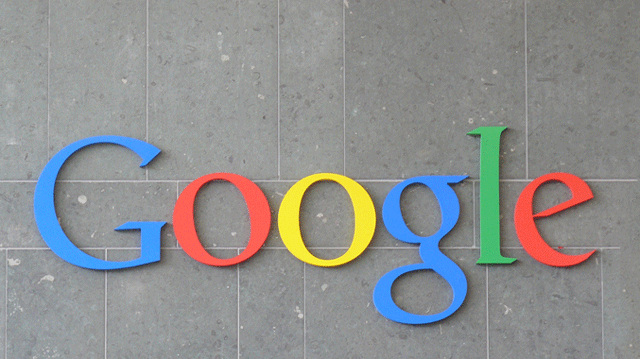 Walking through Google’s new offices in Bryanston in Johannesburg last week, I couldn’t help but get caught up in the excitement. Sure, there were bright colours and the contemporary office designs that Google is known for, meant to inspire the engineers hard at work day and night.
Walking through Google’s new offices in Bryanston in Johannesburg last week, I couldn’t help but get caught up in the excitement. Sure, there were bright colours and the contemporary office designs that Google is known for, meant to inspire the engineers hard at work day and night.
But beyond that, I saw a spirit among Google’s executives and employees that that made me incredibly hopeful for what the American company’s growth could mean for South Africa.
I was especially delighted when Matt Brittin, the president of Google’s operations for Europe, the Middle East and Africa, pointed to dozens of empty desks and said to me: “We built Google’s new space in Johannesburg for growth. We plan to fill these cubicles with local South African employees soon.” Building for growth. That is what Google has done in the US and around the world, and now one of the world’s technology leaders is expanding its operations in South Africa, looking to fill jobs with bright South African minds. This is great news, but more than just new jobs, Google and the innovation aura that surrounds it will open doors for South Africans to draw on the firm’s remarkable range of tools to address many of the day’s complex challenges.
A recent World Bank report estimates that for every 10% increase in broadband penetration, a country can achieve 1,4% growth in their GDP. Right now, South Africa is home to 10m young people between the ages of 15 and 24. Young South Africans have an insatiable appetite for innovation and technology, so providing them greater access to broadband represents an opportunity both for them as individuals, as well as for the country’s economic growth. There are 250 000 small businesses in sub-Saharan Africa that exist only because of the digital economy. The investment in and commitment to innovation and new technology that Google’s expansion represents will build a stronger foundation for those firms, and the new ones that will follow.
Google has transformed from a search engine to one of the most iconic companies in modern times. It epitomises innovation today. With ground-breaking technologies and engineering design, the company helps us with the most ancient of human needs: the need to tell our stories and to give expression to who we are. I was profoundly moved when I saw the results of the competition Google hosted last year, inviting South African children to tell their stories through a Google Doodle competition. The results were inspired and truly captured the spirit and vision of South Africa’s next generation. The winner, a young girl from Krugersdorp, drew a multi-coloured rhinoceros and wrote: “In my South African dream, there is no more poaching. We must fight for those that can’t speak.” That, for me, sums up what technology companies like Google make possible in our lives every single day.
And I am especially pleased that Google has chosen to expand its operations in South Africa now, during what has become an “African renaissance”. Recently, you may have noticed the US has been doubling down on our investments on young people in sub-Saharan Africa. In addition to expanding our economic engagement through the African Growth and Opportunity Act (Agoa), we have increased the funding and resources dedicated to developing the next generation of leaders through the Mandela Washington Fellows programme, which develops the skills for the next generation in civic leadership, public management, and business and entrepreneurship. Dozens of other American companies are committing to high-tech and advanced manufacturing projects in South Africa, too. To cite just a few examples, IBM announced earlier this year it will invest R700m over the next 10 years in university scholarships and establish a “Global Lab” in Johannesburg. Facebook recently partnered with Project Isizwe to set up a satellite Internet café in a northern village in Limpopo and aims to ultimately bring the Internet to all rural Africa.
Last month, US President Barack Obama visited the continent and shared an important message at the Global Entrepreneurship Summit in Nairobi and at the African Union in Addis Ababa. He said: “As Africa changes, I’ve called on the world to change its approach to Africa. So many Africans have told me, we don’t want just aid, we want trade that fuels progress. We don’t want patrons; we want partners who help us build our own capacity to grow. We don’t want the indignity of dependence; we want to make our own choices and determine our own future.” Like so many other American companies that have invested in Africa, these tech companies’ growing presence on the continent affirms that very notion; that Africans want to take today’s most modern tools into their own hands, and build for themselves a better tomorrow.
Google has already been doing great things here, playing an important role as a driver of innovation and a provider of services essential to every South African household. Google’s Digify, a threemonth digital bootcamp, is empowering disadvantaged youth with digital literacy and real skills for the information economy. This incredible programme gives them the training they need to bring new skills and leadership into this country. And Google has partnered with South Africans to smooth the important transition to the knowledge economy. For example, the Google Academy, a training programme created for NGOs earlier this year, helps harness the power of the Web, enabling them to work faster and smarter, saving precious resources and time. Programmes like these have the power to change the landscape in South Africa, expanding opportunities for young people, and institutions, and communities, and the entire nation to build a better future.

Google’s work in South Africa goes far beyond technology. A great example is the Jasper Solar Power Energy Project. Google was one of the funder of the Kimberley-based project to build a 96MW photovoltaic power station, which is now fully operational and bringing power to 80 000 South African homes. The company is investing heavily in wind and solar power projects around the world, having committed more than US$1bn to renewable energy.
And let’s not forget something very basic. It is an ancient concept that knowledge should be shared. But by leveraging novel technology and innovative design, the Google effect is much further reaching. More good information, shared more broadly, has an incredibly democratising influence. The sharing of knowledge empowers individuals and strengthens communities, and also results in something quite truly basic: the joy of discovery.
I have always been intrigued by one of Google’s well-known core principles. Perhaps you have heard that all Google engineers are required to spend 20% of their time on non-core initiatives. This is an inspiring mission, one that I’d like to expand upon in the South African setting. What if we challenged young South Africans to approach their time the same way? What if we asked them to spend 20% of their time thinking about how they could create South African solutions to challenges they see in their communities, schools and places of work? Thanks to Google and other American tech companies that have chosen to invest not just in the South African economy, but in its people, South Africans can develop their own solutions to improve the environment, enhance renewable energy, provide basic goods and services, create new entrepreneurs, and empower a new generation of young people. And that is building for growth, and building a better tomorrow.
- Patrick Gaspard is US ambassador to South Africa

